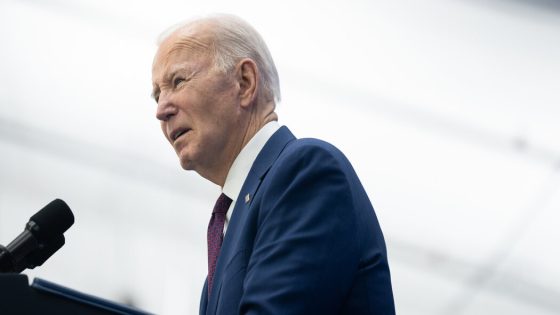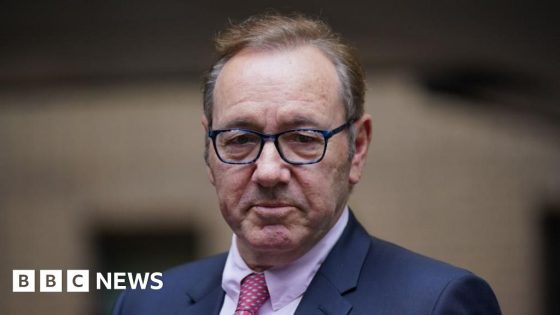Mr. Biden expressed particular outrage about that line. “How in the hell dare he raise that?” the president said during a news conference held hours after Mr. Hur’s report became public. “Frankly, when I was asked the question I thought to myself, it wasn’t any of their damn business.”
The transcript shows that Mr. Hur did not specifically ask when Beau Biden had died. Instead, Mr. Hur pressed Mr. Biden about where he kept papers related to work he did after leaving the vice presidency in January 2017, like teaching at a think tank in Washington, a cancer “moonshot” project and the book he wrote about Beau’s death.
At that point, Mr. Biden, who sometimes stutters, began to stammer and garble matters. He said “when I got out of the Senate” when he meant to refer to leaving the vice presidency, and he seemingly conflated events in 2015, when Beau died and Mr. Biden chose not to run against Hillary Clinton for the 2016 Democratic presidential nomination, with events in 2017, when he wrote the memoir and decided to run for president in the 2020 cycle:
BIDEN: Well, um … I, I, I, I, I don’t know. This is, what, 2017, 2018, that area?
HUR: Yes, sir.
BIDEN: Remember, in this time frame, my son is — either been deployed or is dying, and, and so it was — and by the way, there were still a lot of people at the time when I got out of the Senate that were encouraging me to run in this period, except the president. I’m not — and not a mean thing to say. He just thought that she had a better shot of winning the presidency than I did. And so I hadn’t, I hadn’t, at this point — even though I’m at Penn, I hadn’t walked away from the idea that I may run for office again. But if I ran again, I’d be running for president. And, and so what was happening, though — what month did Beau die? Oh, God, May 30 —
RACHEL COTTON, A WHITE HOUSE LAWYER: 2015.
UNIDENTIFIED MALE SPEAKER: 2015.
BIDEN: Was it 2015 he had died?
UNIDENTIFIED MALE SPEAKER: It was May of 2015.
BIDEN: It was 2015.
ROBERT BAUER, BIDEN’S PERSONAL LAWYER: Or — I’m not sure of the month, sir, but I think that was the year.
MARC KRICKBAUM, HUR’S DEPUTY: That’s right, Mr. President. It —
BIDEN: And what’s happened in the meantime is that as — and Trump gets elected in November of 2017?
UNIDENTIFIED MALE SPEAKER: 2016.
UNIDENTIFIED MALE SPEAKER: ’16.
BIDEN: ’16, 2016. All right. So — why do I have 2017 here?
ED SISKEL, BIDEN’S WHITE HOUSE COUNSEL: That’s when you left office, January of 2017.
BIDEN: Yeah, OK. But that’s when Trump gets sworn in, January.
SISKEL: Right.
BAUER: Right, correct.
BIDEN: OK, yeah. And in 2017, Beau had passed and — this is personal …
Mr. Biden then recounted Beau’s death; how he came to write the subsequent book “Promise Me, Dad,” based on his son’s dying request that he stay involved in public service; and how he decided in 2017, after a rally by white nationalists in Charlottesville, Va., to run for president against Donald J. Trump.
Mr. Biden had several other miscues.
The transcript also contained some minor seeming slips that went unmentioned in Mr. Hur’s report. For example, Mr. Biden needed to be nudged to recall the name of the federal agency that takes custody of official records — the National Archives — or that fax machine is the name of the device that transmits images of documents over phone lines.
But Mr. Hur made a particularly striking assertion in stating that Mr. Biden “did not remember when he was vice president.” As evidence, Mr. Hur quoted him as saying, “If it was 2013 — when did I stop being vice president?” According to the report, Mr. Biden displayed similar confusion on the second day of questioning, asking, “In 2009, am I still vice president?”
Source Agencies



